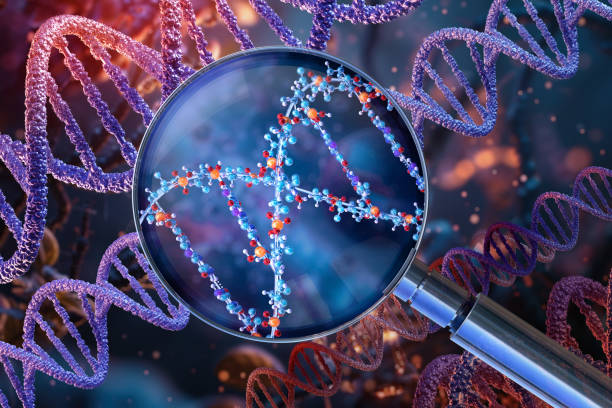As a naturopath, understanding the MTHFR gene variation and its connection to autoimmune diseases like Hashimoto’s is essential for addressing underlying causes and symptoms. The MTHFR gene, which codes for an enzyme responsible for converting homocysteine into methionine, is vital for proper methylation processes in the body. Methylation is critical for detoxification, immune system regulation, and the breakdown of certain compounds that could otherwise accumulate and cause damage.
What Is the MTHFR Gene Variation?
The MTHFR gene variation, while commonly referred to as a “mutation,” is more accurately described as a “variation.” This variation can affect one or both copies of the gene inherited from each parent, and in turn, influence how well the body processes certain nutrients, particularly B vitamins like folate (B9), B6, and B12. A disruption in methylation caused by an MTHFR variation may result in elevated homocysteine levels, which are linked to inflammation, cardiovascular diseases, miscarriages, and even certain cancers.
Symptoms and Health Implications
Symptoms linked to this variation include mental health issues such as brain fog, depression, and anxiety. Additionally, it is associated with oestrogen dominance, which can affect thyroid health, particularly in individuals with Hashimoto’s, an autoimmune condition that impacts the thyroid gland. People with MTHFR variations may also have a higher risk of infertility and difficulty detoxifying heavy metals and other toxins, further complicating their health profile.
Naturopathic Support for Methylation Pathways
From a naturopathic perspective, supporting methylation pathways through diet and supplements can be incredibly beneficial. Foods rich in methylation-supportive nutrients like methylated B vitamins (especially folate), magnesium, and antioxidants should be prioritised. Supplementation is often recommended to help lower homocysteine levels and alleviate some of the associated symptoms.
MTHFR and Thyroid Health
Interestingly, research suggests that people with MTHFR variations may experience unique health challenges, such as an increased risk of thyroid issues as they age. For those with Hashimoto’s, proper methylation support is critical. Studies have indicated that individuals with Hashimoto’s who also carry the MTHFR gene variation may experience more severe symptoms and slower recovery, making nutritional support and lifestyle adjustments crucial for overall well-being.
Genetic Testing and Lifestyle Factors
Although genetic testing can reveal whether someone has the MTHFR variation, it is not the sole determinant of health outcomes. Lifestyle factors, environmental influences, and other genetic interactions also play significant roles. In practice, I have seen patients with one copy of the MTHFR variation who show minimal symptoms, while others with two copies may experience a range of health challenges, including hormonal imbalances, digestive issues, and chronic inflammation.
A Holistic Approach to MTHFR Variations
In my experience, proper support for methylation pathways, along with a focus on detoxification, reducing environmental stressors, and addressing nutrient deficiencies, can significantly improve health outcomes for individuals with Hashimoto’s and other autoimmune disorders. Furthermore, understanding how methylation supports immune function can aid in reducing autoimmune flare-ups, improving energy levels, and optimising overall health.
Empowerment Through Knowledge
Ultimately, it’s essential to approach the MTHFR gene variation with an empowered mindset. It’s not about being victimized by one’s genetic makeup, but rather recognizing the areas where nutritional support and lifestyle modifications can create balance and wellness.
References
- Arakawa, Y., Watanabe, M., Inoue, N., Sarumaru, M., Hidaka, Y., & Iwatani, Y. (2012). Association of polymorphisms in DNMT1, DNMT3A, DNMT3B, MTHFR and MTRR genes with global DNA methylation levels and prognosis of autoimmune thyroid disease. Clinical and Experimental Immunology, 170(2), 194–201. https://doi.org/10.1111/j.1365-2249.2012.04646.x
- Liew, S.-C., & Gupta, E. D. (2015). Methylenetetrahydrofolate reductase (MTHFR) C677T polymorphism: Epidemiology, metabolism and the associated diseases. European Journal of Medical Genetics, 58(1), 1–10. https://doi.org/10.1016/j.ejmg.2014.10.004
- Yang, B., Liu, Y., Li, Y., Fan, S., Zhi, X., Lu, X., Wang, D., Zheng, Q., Wang, Y., Wang, Y., & Sun, G. (2013). Geographical distribution of MTHFR C677T, A1298C and MTRR A66G gene polymorphisms in China: findings from 15357 adults of Han nationality. PLoS ONE, 8(3), e57917. https://doi.org/10.1371/journal.pone.0057917


